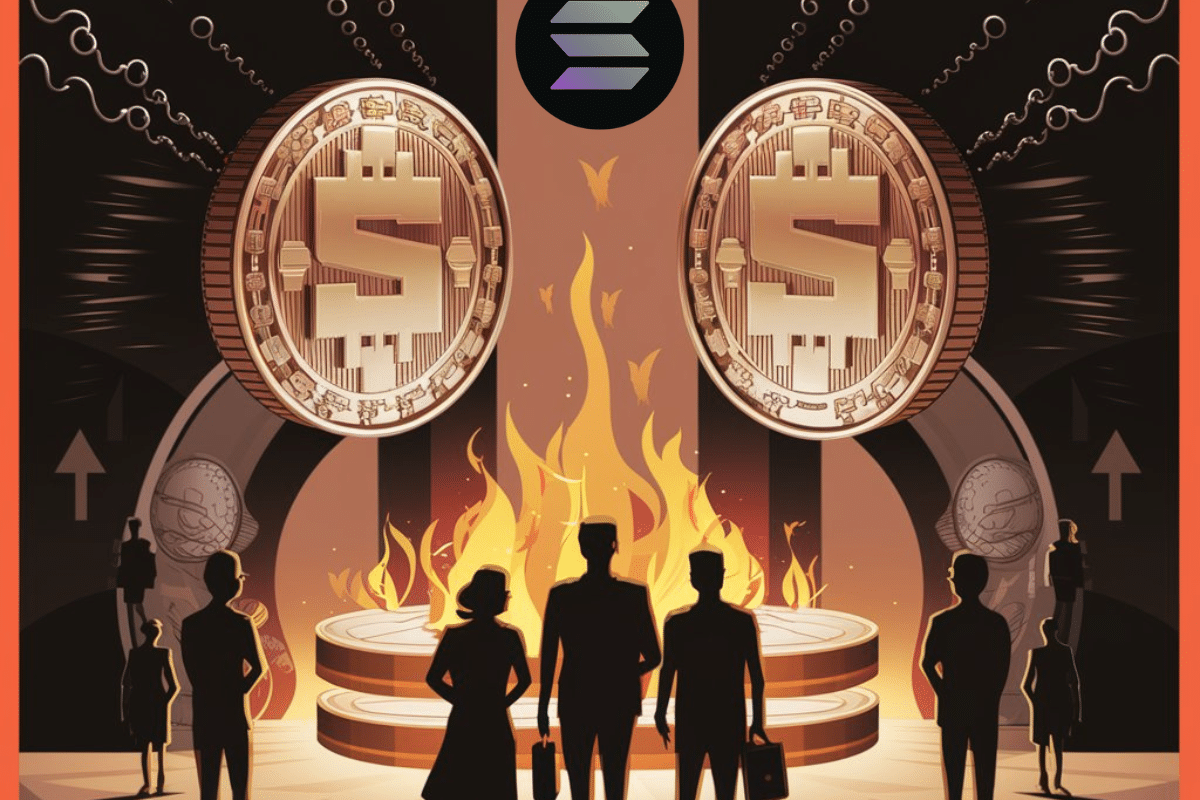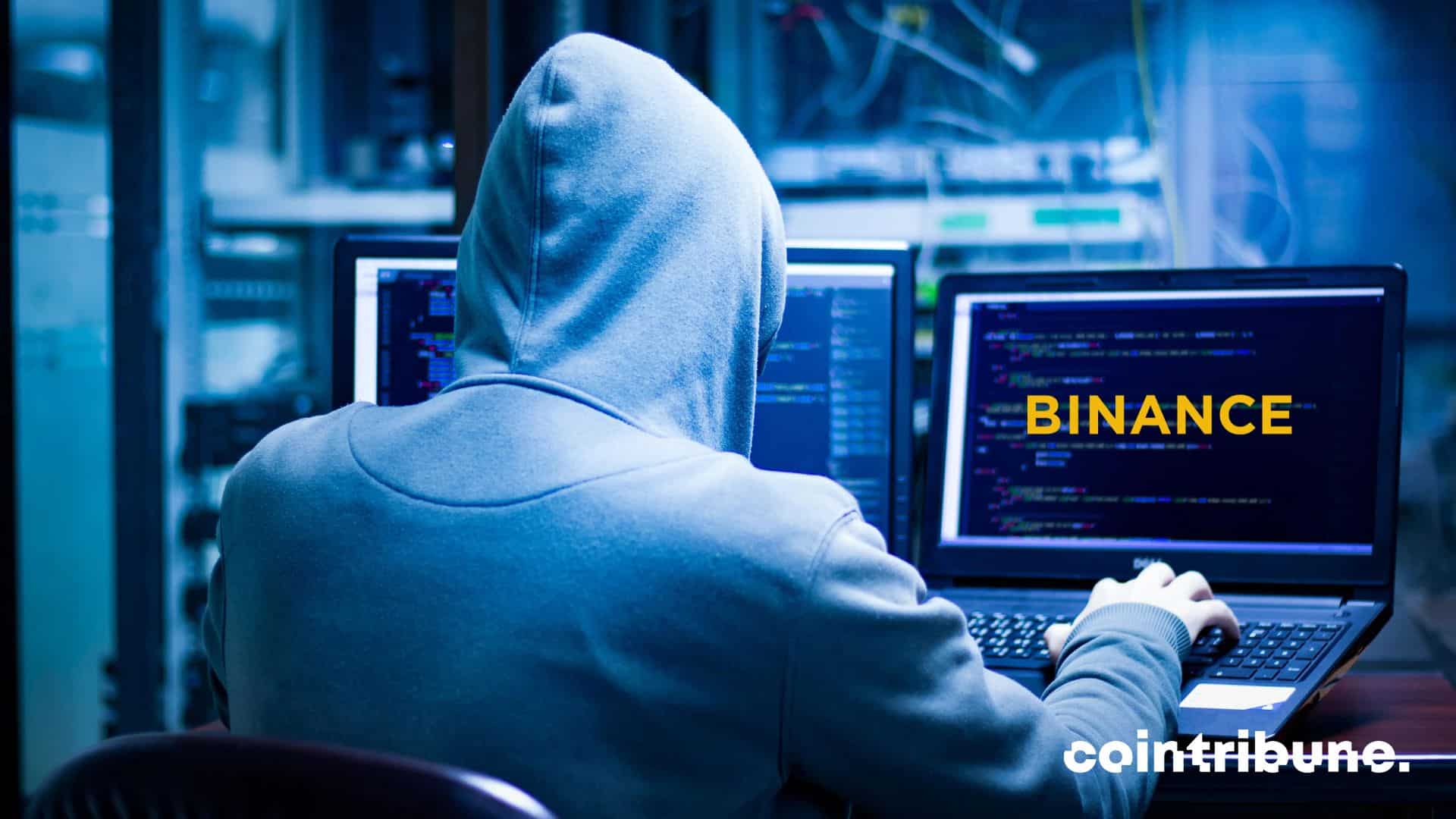Crypto: Protect your gains on Hamster Kombat from scammers!
Theme Scam
Cryptocurrency and Scams: How fraudsters use AI to trap traders
Cardano's blockchain has thwarted a sophisticated DDoS attack aimed at disrupting its network and stealing stacked crypto. Thanks to a quick and effective response from its development team, Cardano has maintained the integrity of its platform, demonstrating its resilience to cyber threats.
Cryptocurrency holders are vulnerable to hacks through malicious plugins, as evidenced by the attack on Binance!
The cryptocurrency exchange BitFinex was targeted in an alleged massive cyberattack by the infamous hacker group FSOCIETY. However, after a week of panic among users, the threat was found to be largely exaggerated. BitFinex's Chief Technology Officer, Paolo Ardoino, provided clarifications bringing relief about the situation.
The former Bitcoin evangelist, Roger Ver, is facing serious allegations of tax fraud amounting to $50 million!
The blockchain security company Blockaid warns investors: about half of the token launches in pre-sale on Solana recently are believed to be fraudulent. This alarming revelation could shake confidence in this crypto ecosystem.
Coin Metrics conducted a study on attacks against Bitcoin and Ethereum. The result: these cryptocurrencies are immune.
After the discovery of a Binance code on Github containing sensitive information, clients' crypto data is being sold on the darkweb.
The US Commodity Futures Trading Commission (CFTC) warns of the increasing scams fraudulently using artificial intelligence (AI) to attract crypto investors with the promise of whopping returns.
The amount of crypto stolen by hackers decreased in 2023, but the number of attacks continues to increase, according to a recent report.
Many crypto accounts are being falsely reported as spam on X, causing anger within the community. Elon Musk explains!
With AI tools like ChatGPT, scammers can now scam you on dating sites and social networks.
Focus on how AI is transforming the landscape of scams in 2024, highlighting the urgency of adaptation and increased vigilance.
The specter of fraud hangs over the world of crypto. Will MEXC, once a reputable exchange, be the next to succumb to temptation? Between technical issues, approximate communication, and legal threats everywhere, serious doubts now surround this giant with feet of clay. Don't let your cryptos be stolen during these end-of-year days, keep an eye out!
Transaction fees in bitcoin have skyrocketed in recent days due to what is known as "mempool congestion".
Steven Nerayoff, a former advisor to Ethereum, has publicly accused the founders of Ethereum of fraud. According to his allegations, Vitalik Buterin and Joseph Lubin, two iconic figures in the crypto industry, were conducting fraudulent activities 1,000 times larger than SBF. The founder of FTX, now convicted, orchestrated one of the biggest financial frauds in American history. But what are the reasons behind these accusations? Let's find out.
In the current digital era, a mere rumor about Bitcoin can spread instantly and disrupt the global market in the blink of an eye. Recently, this reality was strikingly demonstrated when inaccurate information led to a soaring surge in Bitcoin’s price, followed by an equally abrupt fall. So, what’s the…
Russia, frequently criticized for its discreet involvement in the crypto sphere, is now at the center of a major scandal: the lightning-fast hacking of FTX.
Huobi Global and Binance are two prominent crypto companies. In the crypto industry, rivalries are not uncommon. However, Binance CEO CZ remains sportsmanlike in the face of comparisons and extends a hand to his counterpart Justin Sun as his exchange falls victim to a hack.
Cybercrime continues to plague the crypto world. Vitalik Buterin, co-founder of Ethereum, suffered a compromise of his X account, leading to considerable financial consequences for victims who followed a fraudulent link.
Scammers are stepping up their attacks on MetaMask crypto wallet users. Some are even using official government websites. Aware of the need to protect cryptocurrency investors, MetaMask has reacted quickly. Its security team has implemented sophisticated measures.
In the crypto sector, Ethereum presents itself not as an idyllic asylum, but rather as an unsuspected empire of cybercrime. On this digital stage, an alarming manifestation of crime thrives, the titanic scale of which was recently unveiled by insightful researchers.
Scams, hacks, crackdowns, aggressive regularization… so many stories marring the crypto-sphere. When will these terrible nightmares end? No one has the answer yet. We might as well redouble our vigilance to avoid being fleeced by ill-intentioned project promoters like the scammers behind BALD.
Cryptos are useful for those who invest funds in them. For some, it's a way of diversifying their asset portfolio. Others, on the other hand, see them as an effective way of disguising the provenance of illicitly earned funds.
The creator of ChatGPT launches Worldcoin, a shitcoin that wants the apple of your eye.
A group of hackers backed by the North Korean government managed to get into the system of JumpCloud, an American IT management company. They used the latter to target crypto companies with the aim of stealing digital assets. This latest case of hacking, which joins the long list of misdeeds orchestrated by North Korean hackers, has a rather different modus operandi. Should we be concerned? Find out in this article.
While networks are renowned for their security, this doesn't always prevent malicious individuals from circumventing it. Once again, Poly Network has been targeted by an attack that has compromised numerous assets. As a result, its services may be temporarily interrupted.
In the darkness of virtual worlds, a devious threat is emerging. The colorful world of Super Mario, usually a source of joy, turns out to be a minefield for cryptocurrency enthusiasts.
Elon Musk, the CEO of Tesla and SpaceX, has denied allegations that he holds a Dogecoin portfolio linked to insider trading. The ongoing class-action lawsuit accuses Musk of being involved in a racketeering scheme to support Dogecoin. The plaintiffs are seeking $260 billion in damages. According to court documents, two wallets associated with Musk sold 1.4 billion Dogecoins, worth over $124 million, over a two-day period in April.





























